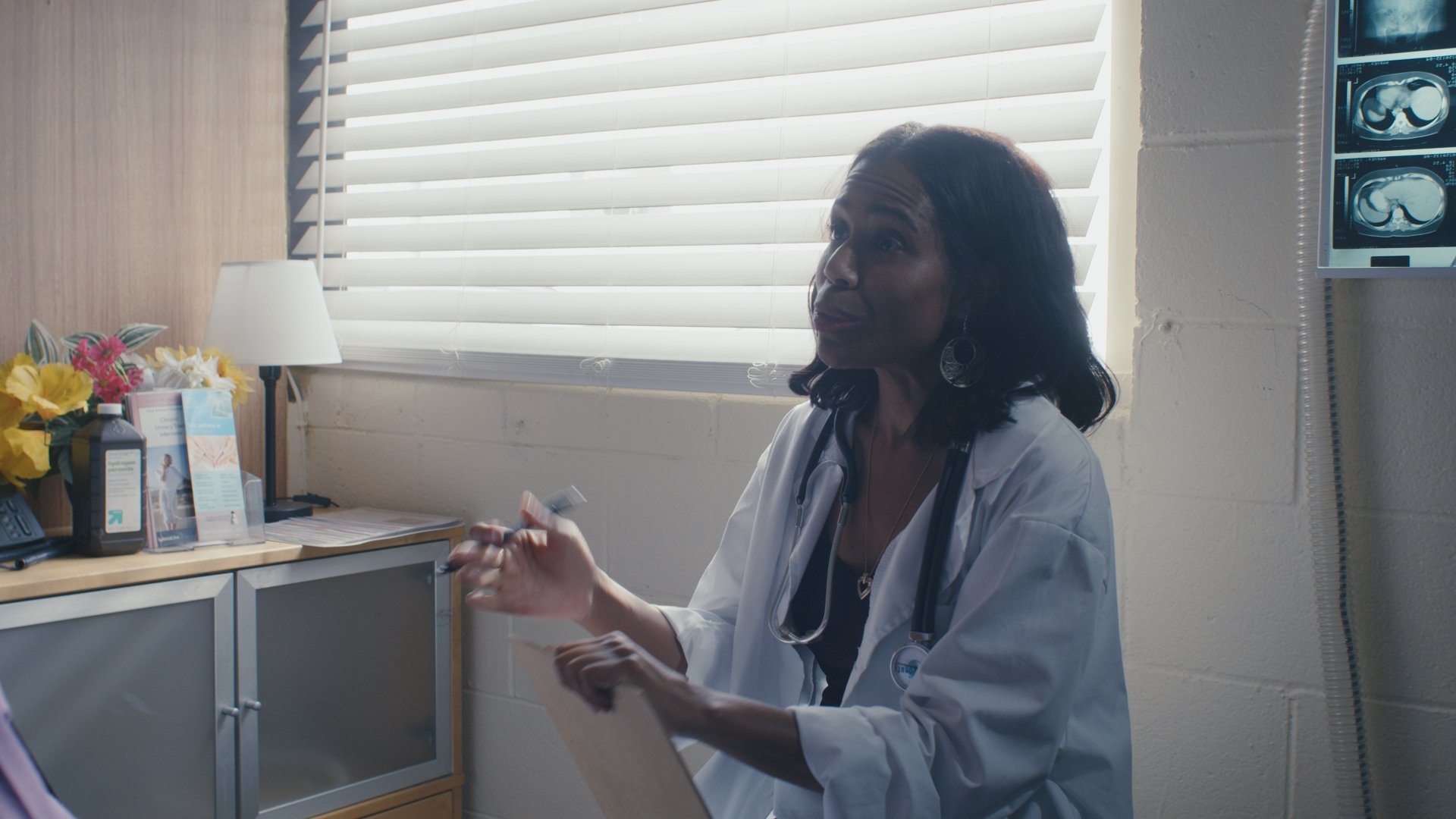Marcus D. Spencer wears many hats in A Murder in Oakland: Beauty Is Deadly—actor, director, co-writer, and executive producer. While his ambition is evident throughout the film, the final product is a mixed bag: engaging in concept, but uneven in execution.
The story picks up with the reopening of a cold case that once rocked Oakland—a young model named Mercedes (Dejia McCowan) was murdered, and new evidence brings detectives Williams (Spencer) and Adams (Chris Crofut) together to revisit the unsolved crime. The pair, working together for the first time, must navigate not only a city haunted by the past but also their own clashing personalities. Meanwhile, Williams grapples with personal demons that threaten to derail both his career and the case.
To its credit, A Murder in Oakland wastes no time. Clocking in at just 72 minutes, the film moves briskly through its murder mystery plot, throwing in enough red herrings and developments to keep audiences guessing. It opens strong with a classic genre touch: a sudden murder punctuated by birds scattering—a familiar but effective nod to the crime drama playbook.
Spencer’s direction aims for a gritty, character-driven approach, and the story's emotional focus on Detective Williams’ journey adds some unexpected depth. Rather than relying solely on procedural beats, the film delves into Williams' internal struggles—showcasing a man slowly shedding his tough exterior as the case forces him to confront both grief and guilt.
Unfortunately, the film stumbles in a few noticeable ways. The dialogue often feels improvised and at times unnecessary, causing several scenes to drag when they should be tightening the noose on tension. Some exchanges feel aimless, giving the impression that scenes were filmed without a fully fleshed-out script. This leads to pacing issues, especially in the middle stretch.
The acting across the board is serviceable, though largely unremarkable. No performance feels out of place, but few truly stand out. An unusual creative choice—whether intentional or due to oversight—is the inclusion of moments where actors flub lines or break character with laughter. While these raw moments add a layer of realism, they also break the immersion and draw attention to the filmmaking process itself.
One subplot involving Dr. Graham (Ci Ci Foster), a police therapist with her own marital troubles, feels wedged into the narrative. On its own, it presents a compelling personal drama, but within the larger framework of the film, it comes off as a detour that interrupts the momentum.
Visually, the film also suffers from one of its most noticeable flaws: the color correction. There’s a persistent gray tone across the film that doesn’t feel deliberate—it reads more as an error than a stylistic choice. While a washed-out palette can add to a grim atmosphere when used intentionally, here it becomes a distraction and detracts from the film’s more intimate and emotional moments.
On a brighter note, the music, composed by Michael Oluwatomisin Afolami, is surprisingly strong and well-placed, enhancing scenes without overwhelming them.
In the end, A Murder in Oakland: Beauty Is Deadly has its heart in the right place. It’s a crime drama that attempts to do more than just chase down clues—it wants to say something about grief, masculinity, and personal redemption. While it doesn’t always land its punches cleanly, there's clear passion behind the project.
Jessie Hobson





